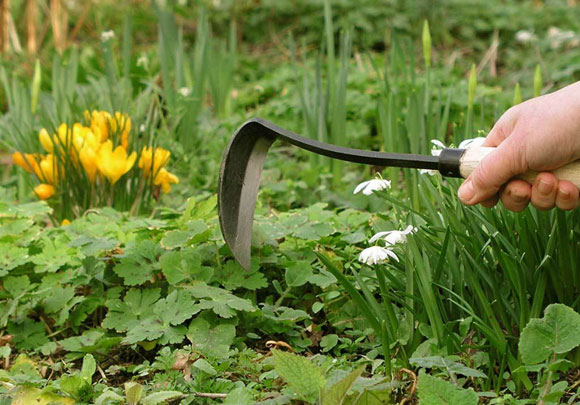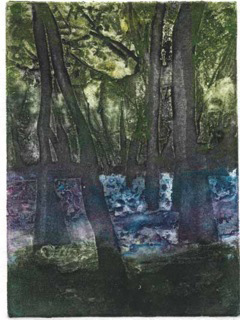Oh the joy of weeding! As fast as you get rid of them 5 foot high thistles appear from nowhere and all the rain has meant that the garden seems to be turning into a jungle, with giant fox gloves, poppies and holly hocks (yet to flower). At least we are not having to water anything and the apple trees are enjoying the extra moisture.
Our soil takes a lot of the pleasure out of gardening – it’s heavy clay and whilst it’s very fertile and great to work with when ‘improved’ it is usually either baked solid or clumped together in an impenetrable mass. I usually sigh enviously on Gardener’s World as Monty Don, effortlessly turns over the soil. However, a wonderful little razor hoe from the Worm that Turned is turning me into the gardening equivalent of Edward Scissorhands – it feels just like an extension of my arm as I joyfully slice through the weeds and chop through the clay soil with ease. I can’t say I relish the task of weeding – it’s relentless – but at least with this little tool I’m more enthusiastic about attacking it.


